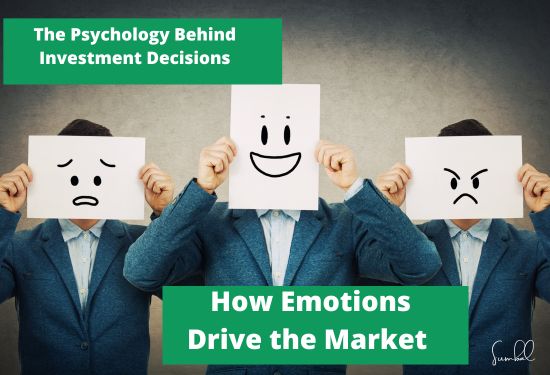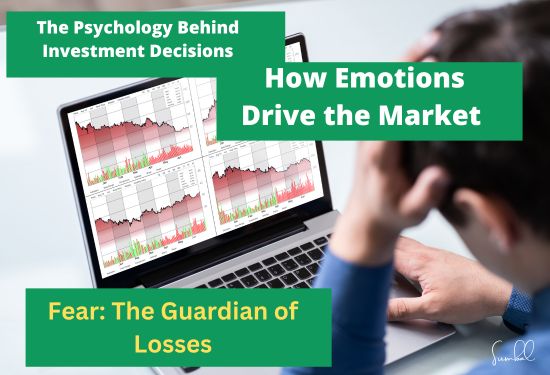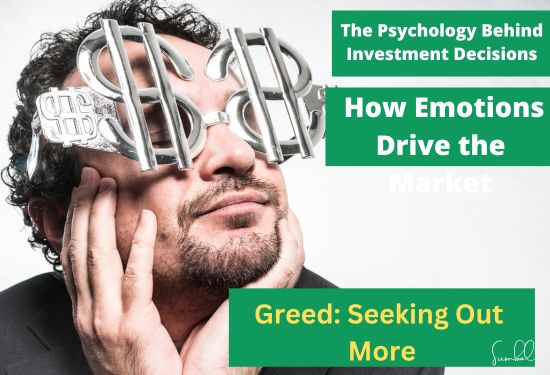The act of entering into financial markets usually appears to be a rational one based on numbers, charts, and data. Yet, underneath those numbers and outcomes would lie a much deeper and more complex interplay of human emotions that would very much affect investment decisions. Fear, greed, and other psychological factors usually play a more important role in determining the outcome of markets than most investors realize.

Fear: The Guardian of Losses
Among the emotions, fear is the most powerful in determining investment decisions. As fear grips the markets, people can not make effective decisions anymore. Take, for example, the case of selling during times of downturn in the market; one is gripped by the fear of not realizing the returns in just a few seconds. They decide to lose money by selling assets before recovery rather than waiting for its comeback. The incidence of panic selling has been seen in some of the greatest crashes in the history of the market.
Fear is seen to be negative, but it serves as a restraining force, guiding investors from high-risk ventures. However, it can also lead to missing opportunities if not checked properly, like in the case of the many investors who kept back on the sidelines during the financial crisis of 2008. During this time, they just wait for their investment markets to rebound.

Greed: Seeking Out More
Investors are driven by greed to take large risks in the hopes of earning larger profits. The main factor in this case is an emotional phenomenon called "fear of missing out" (FOMO), especially during bullish markets. Investors are into chasing trends, from purchasing the stocks that are going up too quickly. They also buy cryptocurrency for no other reason than the price movement, without anything to do with fundamentals.
A famous illustration of greed is the late 1990s dot-com bubble. Most investors were willing to pour money into tech stocks with less concern about profit. When the bubble finally burst, it was an upsetting reminder of the risks of giving way to greed and becoming instant millionaires.

Herd Mentality: The Emotional Bandwagon
Man is a social animal, and the same goes for investment. Herd mentality defines the inclination to go after the crowd, usually out of fear or greed. Most people sell because fear drives other traders, thus heightening the subsequent fall in the market. Greed attracts investors into hot investments during the bull run, pushing the prices far away from the baselines or normal valuations.
Understanding such an emotional phenomenon is essential because of their collective impact on market psychology. Most successful investors are those unwilling to engage in any activity that seems to go with the herd; rather, they wait for 'bargains' (buying during dips) so that they, too, can sell at their peak.
The Role of Behavioral Biases
Investors' behavioral biases that affect their investment decisions are another factor, like confirmation bias, whereby investors find out the information that amplifies their existing beliefs and ignore anything that goes against such beliefs. Another example is overconfidence bias, which deals with the tendency of people to overestimate their knowledge and prediction abilities, leading to poor decision-making.
Recognizing these biases and managing emotions can help investors make more informed choices. Strategies like diversification, disciplined investing, and consulting financial advisors can mitigate emotional pitfalls.
